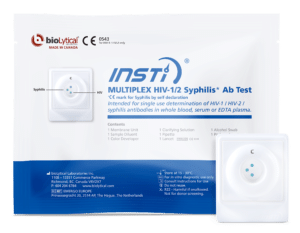It’s been two weeks since new draft guidelines were issued by the National Institute for Health and Care Excellence (NICE), stating that adults and young people living in one of the 20 local authority areas with an extremely high prevalence of HIV should be offered a HIV test, for both routine and emergency visits.
The legislation will lead to 11 million more people being offered an HIV test – effectively making it an opt-out service for the first time in history.
It’s hoped that the legislation will also address the stigma associated with HIV – reducing some of the fear that still surrounds HIV testing.
Professor Gillian Leng, deputy chief executive of NICE, said: ‘It’s easier than ever before to access testing for HIV, but with thousands still living with undiagnosed HIV we know there is much more to do. We want to normalise HIV testing so it isn’t viewed any differently from any other blood test. There are now highly effective treatments for HIV and it should no longer be seen with fear or stigma.’
Over the last two weeks, the reaction has been incredibly positive among both the public and HIV charity groups in favour of the guidelines.
With the Terrance Higgins Trust, the largest voluntary sector provider of HIV and sexual health services in the UK, tweeting that they ‘welcome’ the new testing guidelines. Their welcome carried a stark warning: ‘the challenge is to ensure funding is available and innovative testing embraced.’
Renowned media medic, Dr Christian Jessen, also commented ‘This MUST become a routine test. There should, in theory, be no new #HIV infections. We have the recourses to make this possible.’
Among the public, the reaction has been mixed – with most agreeing that routine testing should be offered to all – as always, there will be some resistance to the idea of change.
Livleen Veslemes, bioLytical’s Chief Operating Officer concluding: ‘every opportunity to test and know your HIV status – whether it is positive or negative is important. This is a step in the right direction to educate ourselves and dispel the stigma surrounding HIV.’



